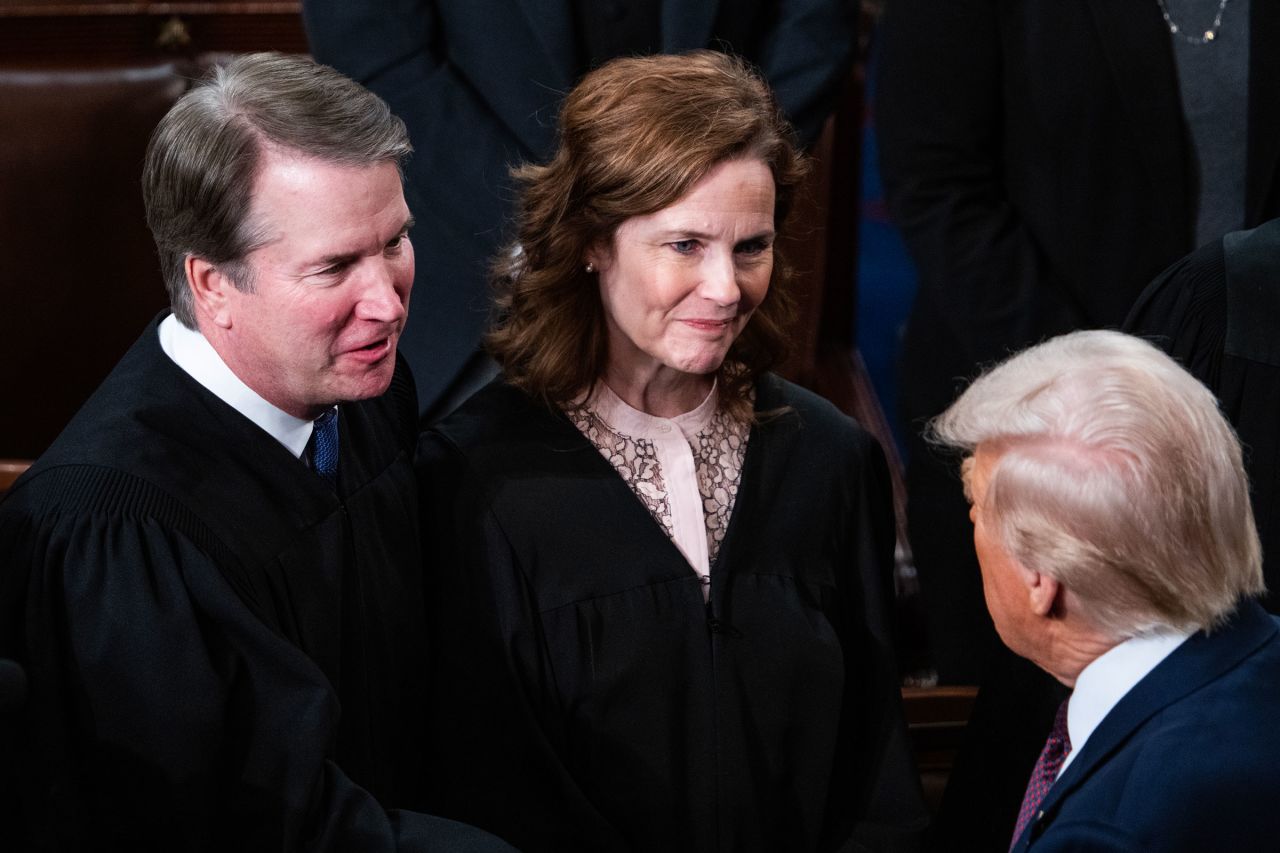Gambiaj.com – (Washington, D.C.) – In a sweeping decision with far-reaching implications for executive power and judicial authority, the U.S. Supreme Court on Friday sided with President Donald Trump in his long-standing battle to limit the power of lower federal courts to issue nationwide injunctions. The ruling, authored by Justice Amy Coney Barrett, curbs the ability of individual judges to block federal policies nationwide, handing Trump a significant legal and political victory as he pushes forward on a host of contested executive actions.
At the heart of the case was Trump’s controversial effort to end birthright citizenship—an idea widely seen as legally dubious—but the Court stopped short of endorsing the policy outright. Instead, the majority opinion focused narrowly on procedural limits, delivering a structural change to the judicial landscape that could benefit future presidents across party lines.
A Structural Shift in Judicial Power
Writing for the conservative majority, Barrett emphasized that federal courts are not intended to serve as overseers of the executive branch but are instead limited to resolving actual legal disputes within the scope of authority granted by Congress.
“When a court concludes that the executive branch has acted unlawfully, the answer is not for the court to exceed its power, too,” she wrote, rejecting the expansive use of nationwide injunctions as judicial overreach.
The ruling reinforces a long-voiced complaint by Trump and his allies: that lower court judges—especially in liberal jurisdictions—have wielded disproportionate power to thwart the president’s agenda by blocking policies before they could be fully implemented or challenged at the appellate level.
Legal experts noted the precedent’s potential to embolden Trump in his second term. “This is going to make it much harder for litigants to bring challenges to Trump policies in general,” said Steve Vladeck, a Supreme Court analyst and professor at Georgetown University Law Center. “Many cases won’t present as clear a justification for nationwide relief or a nationwide class as this one does.”
Birthright Citizenship Still Faces Legal Headwinds
Despite Trump’s triumphant tone at a post-ruling press briefing, the Supreme Court did not greenlight his order to end birthright citizenship—an executive action critics say defies constitutional guarantees under the 14th Amendment. Analysts suggest that the order may still face swift blockage through alternative legal channels, such as class-action litigation or narrower injunctions crafted to apply only to plaintiffs.
The 14th Amendment clearly states that American citizenship is a birthright for all people who are born on American soil.
Its first section reads: “All persons born or naturalized in the United States, and subject to the jurisdiction thereof, are citizens of the United States and of the State wherein they reside. No State shall make or enforce any law which shall abridge the privileges or immunities of citizens of the United States; nor shall any State deprive any person of life, liberty, or property, without due process of law; nor deny to any person within its jurisdiction the equal protection of the laws.”
Indeed, while the decision gives the Trump administration procedural breathing room, it also leaves the controversial policy legally vulnerable. “Today’s ruling nominally allows the Trump administration to put the birthright citizenship order into effect across most of the country,” Vladeck explained, “but lower courts will still be able to prevent it from being enforced.”
Fiery Dissents: A Warning on the Rule of Law

The Court’s liberal justices issued blistering dissents warning that the decision threatens judicial independence and weakens constitutional safeguards. Justice Sonia Sotomayor, joined by Justices Kagan and Jackson, accused the majority of enabling the White House to play legal games while avoiding direct scrutiny of the policy’s constitutionality.
“With the stroke of a pen, the President has made a ‘solemn mockery’ of our Constitution. Rather than stand firm, the Court gives way,” Sotomayor said in a rare bench reading of her dissent.
Justice Ketanji Brown Jackson went further, calling the decision “an existential threat to the rule of law.” She warned that the ruling could allow future presidents to bypass judicial oversight and act unlawfully with impunity. “Eventually, executive power will become completely uncontainable, and our beloved constitutional Republic will be no more,” she wrote.
Trump Claims Victory, Targets More Policies
At a celebratory White House appearance flanked by Attorney General Pam Bondi and Deputy Attorney General Todd Blanche, President Trump hailed the ruling as “a victory for the Constitution, the separation of powers, and the rule of law.”
He vowed to use the momentum to resurrect a number of stalled policies. “We can now probably file to proceed with these numerous policies and those that have been wrongly enjoined,” Trump said, listing actions to cut funding to sanctuary cities, suspend refugee resettlement, freeze discretionary spending, and restrict transgender health coverage.
While legal observers predict continued litigation, the Supreme Court’s decision undeniably shifts the power dynamic between the executive and the judiciary, setting a high bar for nationwide injunctions that may shield future presidential policies from early legal disruption.
The ruling represents a tectonic shift in administrative law. While President Trump secured a procedural triumph, the substantive legal battles—particularly over immigration and citizenship—are far from over.
The Court has rebalanced judicial tools without fully endorsing the policies they were used to stop, leaving a judiciary more constrained and a presidency potentially more assertive. Whether that recalibration will withstand future constitutional tests remains to be seen.










